The Benefits of Experiential Learning in Marketing Education
Experiential learning has become an essential component of modern education, especially in fields like marketing. This method of learning goes beyond traditional classroom lectures and textbooks by providing students with hands-on experiences that allow them to apply their knowledge in real-world situations.
- 1/5/2024
- 3 min read
 Click
to read the article
Click
to read the article
In the field of marketing, experiential learning offers a range of benefits that can help students better understand the complexities of the industry and develop the skills they need to succeed in their careers.
Enhances Practical Skills
One of the key benefits of experiential learning in marketing education is that it helps students develop practical skills that are essential for success in the field. By participating in hands-on projects, internships, and other real-world experiences, students have the opportunity to apply the theoretical knowledge they have gained in the classroom to solve actual marketing challenges. This practical application helps students develop critical thinking, problem-solving, and communication skills that are essential for success in the fast-paced world of marketing.
Builds Industry Connections
Another advantage of experiential learning in marketing education is that it allows students to build valuable connections within the industry. Through internships, job shadowing opportunities, and networking events, students have the chance to meet and learn from professionals who are currently working in the field. These connections can lead to mentorship opportunities, job offers, and valuable insights that can help students launch their careers in marketing.
Fosters Creativity and Innovation
Experiential learning in marketing education also fosters creativity and innovation by encouraging students to think outside the box and explore new ideas. By working on real-world marketing projects, students are challenged to come up with creative solutions to complex problems, leading to the development of innovative marketing strategies and campaigns. This hands-on approach to learning helps students develop their creativity and problem-solving skills, which are essential for success in a constantly evolving industry like marketing.
Improves Collaboration and Teamwork
Effective marketing requires collaboration and teamwork, and experiential learning provides students with opportunities to work together on real-world projects. By collaborating with their peers, students learn how to communicate effectively, share ideas, and work towards common goals. This experience helps students develop the teamwork skills that are essential for success in the marketing industry, where collaboration is often necessary to achieve desired results.
Provides Real-World Experience
Perhaps the most significant benefit of experiential learning in marketing education is that it provides students with real-world experience that can set them apart in the job market. By participating in internships, co-op programs, and other hands-on experiences, students gain valuable experience working in the field and can demonstrate their skills and knowledge to potential employers. This practical experience can give students a competitive edge when applying for jobs in the marketing industry and can help them transition more smoothly from academia to the professional world.
In conclusion, experiential learning plays a crucial role in marketing education by providing students with practical skills, industry connections, creativity, teamwork experience, and real-world experience. By incorporating hands-on learning opportunities into the curriculum, educators can better prepare students for the challenges of the marketing industry and help them develop the skills they need to succeed in their careers.
Recent posts
Random news

The Growth of E-commerce and its Impact on Marketing Education
- 2023-12-25T00:00:00Z

The Relevance of Guerrilla Marketing in Educational Curricula
- 2024-01-01T00:00:00Z

Teaching Customer-Centric Marketing Strategies
- 2023-12-30T00:00:00Z

Utilizing Case Studies in Marketing Education for Real-World Learning
- 2024-01-15T00:00:00Z

Sustainability and Ethics in Modern Marketing Education
- 2024-02-27T00:00:00Z

Leveraging Big Data in Marketing Education
- 2023-12-31T00:00:00Z

Personal Branding and its Importance in Marketing Education
- 2024-02-10T00:00:00Z

Adapting to Change: Agile Methodologies in Marketing Education
- 2024-02-14T00:00:00Z

The Intersection of Psychology and Marketing in Educational Programs
- 2024-01-14T00:00:00Z

Content Marketing: Crafting a Core Component of Marketing Education
- 2023-12-18T00:00:00Z

The Importance of Cultural Competency in Global Marketing Education
- 2024-01-15T00:00:00Z

Building a Successful Career in Marketing through Education
- 2024-01-04T00:00:00Z

The Power of Visual Storytelling in Marketing Education
- 2024-02-05T00:00:00Z

Influencer Marketing: Teaching the New Age of Endorsement
- 2024-02-09T00:00:00Z

Building Collaborative Skills in Marketing Students through Team-Based Projects
- 2024-02-10T00:00:00Z

Email Marketing: An Indispensable Skill in Marketing Education
- 2024-01-27T00:00:00Z

Blending Traditional and Digital Marketing in Education Programs
- 2024-02-20T00:00:00Z

Engaging Millennials and Gen Z in Marketing Education
- 2024-01-10T00:00:00Z

Branding Basics: An Essential Course in Marketing Education
- 2024-02-27T00:00:00Z

Mobile Marketing: Education for the Smartphone Era
- 2024-01-13T00:00:00Z

The Synergy between Marketing and Sales: An Educational Perspective
- 2024-02-26T00:00:00Z
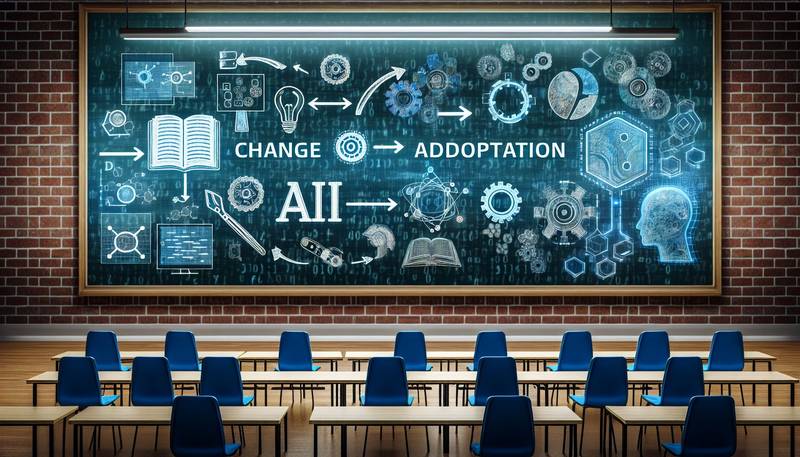

Cross-Cultural Marketing Education: Preparing for Global Challenges
- 2024-03-02T00:00:00Z

Staying Ahead: Continuous Learning in Marketing
- 2023-12-04T00:00:00Z

From Concept to Market: The Product Development Process
- 2024-02-25T00:00:00Z

Personal Selling and Sales Management in Marketing Education
- 2023-12-30T00:00:00Z

How to Design an Effective Marketing Education Curriculum
- 2024-03-01T00:00:00Z

Teaching the Future: Predictive Analytics in Marketing Education
- 2023-12-03T00:00:00Z

Developing Leadership Skills through Marketing Education
- 2024-02-13T00:00:00Z

Marketing Automation: Teaching the Tools of Efficiency
- 2023-12-18T00:00:00Z

Crisis Management and Communication in Marketing Education
- 2024-01-14T00:00:00Z
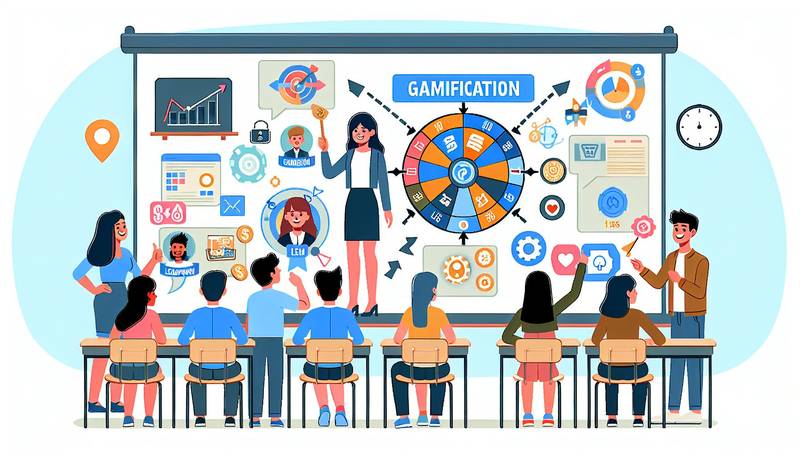
How to Effectively Use Gamification in Marketing Education
- 2024-03-01T00:00:00Z

Understanding the Marketing Mix in Today's Digital World
- 2024-01-20T00:00:00Z

Understanding Consumer Behavior: A Foundation of Marketing Education
- 2024-01-07T00:00:00Z

Emerging Trends in Marketing Education for the 21st Century
- 2024-02-06T00:00:00Z

Mastering the Fundamentals of Marketing Education
- 2023-12-17T00:00:00Z

Integrating Customer Feedback into Marketing Educational Programs
- 2023-12-21T00:00:00Z

The Future of Marketing Education: Predictions and Preparations
- 2024-03-11T00:00:00Z

Integrating Digital Tools into Marketing Education
- 2024-02-22T00:00:00Z

Strategic Marketing Planning: A Key Focus in Marketing Education
- 2024-02-23T00:00:00Z

From Classroom to Career: Marketing Education Pathways
- 2024-03-04T00:00:00Z

The Advantages of Online Marketing Education
- 2024-02-23T00:00:00Z

The Impact of AI and Automation on Marketing Education
- 2023-12-11T00:00:00Z

Utilizing Virtual Reality in Marketing Education
- 2024-01-01T00:00:00Z

Collaborative Learning in Marketing Education: Benefits and Strategies
- 2023-12-30T00:00:00Z

The Significance of Customer Relationship Management in Marketing Education
- 2024-01-29T00:00:00Z

Public Relations and Its Role in a Marketing Education
- 2023-12-11T00:00:00Z

Search Engine Optimization: A Must-Have Skill in Marketing Education
- 2024-02-15T00:00:00Z

Innovation in Retail Marketing: Trends and Education
- 2024-03-07T00:00:00Z

Personal Branding 101: Teaching the Fundamentals in a Digital Age
- 2023-12-03T00:00:00Z

The Role of Experiential Learning in Shaping Tomorrow's Marketing Leaders
- 2024-02-16T00:00:00Z
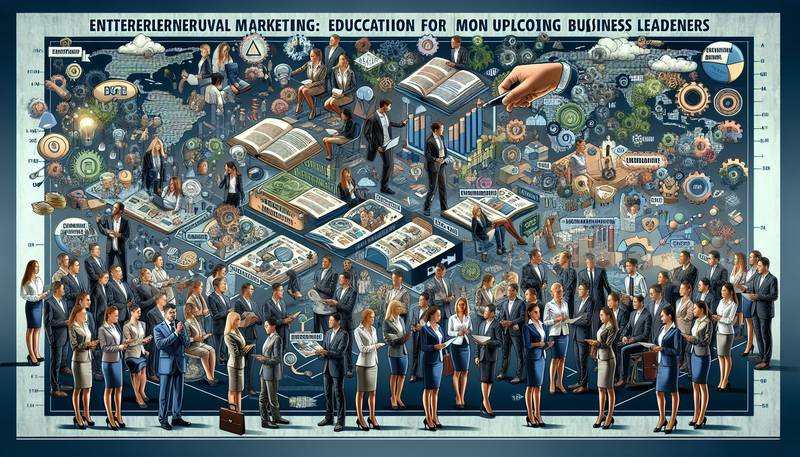
Entrepreneurial Marketing: Education for Upcoming Business Leaders
- 2024-01-06T00:00:00Z

Building and Managing Strong Brands: A Marketing Education Focus
- 2024-02-05T00:00:00Z

The Benefits of Experiential Learning in Marketing Education
- 2024-01-05T00:00:00Z

Developing Effective Marketing Communications Strategies
- 2024-01-30T00:00:00Z

Creating Compelling Content: A Pillar of Marketing Education
- 2024-02-04T00:00:00Z

Viral Marketing: Strategies and Education
- 2024-01-22T00:00:00Z

Teaching the Importance of Market Research in Decision Making
- 2024-03-07T00:00:00Z

Teaching the Art and Science of Pricing Strategies in Marketing
- 2024-01-10T00:00:00Z
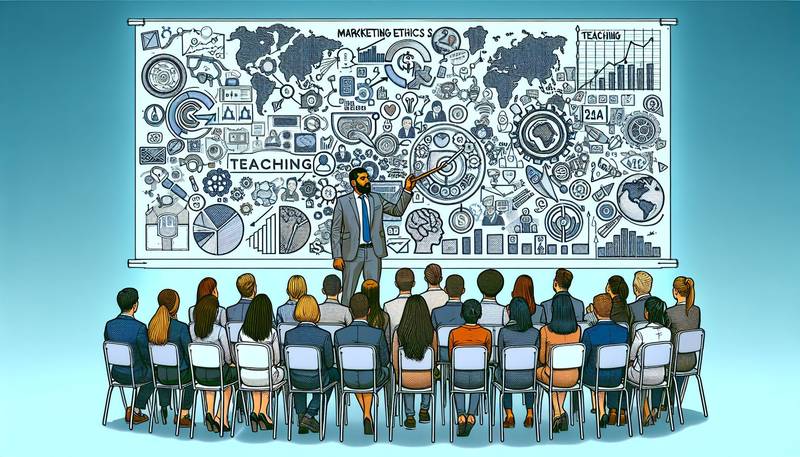
Challenges and Solutions in Teaching Marketing Ethics
- 2023-12-04T00:00:00Z

The Importance of User Experience (UX) in Marketing
- 2023-12-10T00:00:00Z

Direct Marketing Techniques in the Educational Curriculum
- 2023-12-21T00:00:00Z

The Evolution of Marketing Education in the Digital Era
- 2023-12-14T00:00:00Z

The Role of Social Media in Modern Marketing Education
- 2024-03-10T00:00:00Z

Digital Advertising: A Core Subject in Marketing Education Today
- 2024-02-02T00:00:00Z
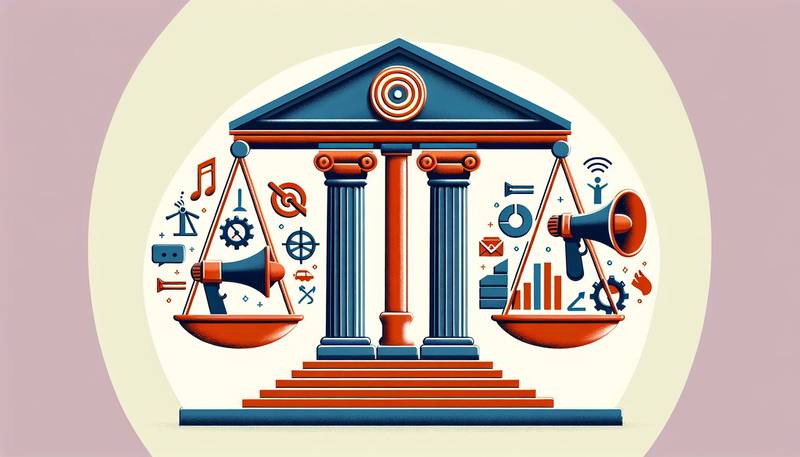
Teaching the Legal Aspects of Marketing
- 2023-12-04T00:00:00Z

Web Analytics and Digital Insights for Marketing Professionals
- 2024-01-05T00:00:00Z

The Role of Storytelling in Effective Marketing Education
- 2023-12-26T00:00:00Z

Sustainability and Ethics in Marketing: Incorporating Modern Values into Education
- 2024-02-23T00:00:00Z

Leveraging Social Media in Marketing Education: Opportunities and Challenges
- 2024-01-08T00:00:00Z

Nurturing Creativity and Innovation in Marketing Students
- 2024-02-13T00:00:00Z

Bridging the Gap between Theory and Practice in Marketing Education
- 2024-01-05T00:00:00Z

The Role of Internships in Enhancing Marketing Education
- 2023-12-25T00:00:00Z

The Importance of Analytics in Marketing Education
- 2024-02-25T00:00:00Z

The Role of Design Thinking in Marketing Education
- 2023-12-06T00:00:00Z

The Importance of Creativity in Marketing Education
- 2024-01-16T00:00:00Z

Event Marketing: Education for Memorable Brand Experiences
- 2024-01-21T00:00:00Z

Evaluating Marketing Education: Metrics for Success
- 2023-12-18T00:00:00Z

Global Marketing Strategies: Education for a Borderless World
- 2024-02-07T00:00:00Z

Navigating the World of Affiliate Marketing in Educational Programs
- 2024-01-15T00:00:00Z

The Importance of Networking in Marketing Education
- 2024-01-30T00:00:00Z

B2B Marketing: Developing Skills for the Business Market
- 2023-12-25T00:00:00Z

How Technology is Reshaping Marketing Education
- 2024-01-27T00:00:00Z

The Evolution of Marketing Education: Preparing Students for a Data-Driven World
- 2023-12-21T00:00:00Z

Effective Use of Social Listening Tools in Marketing
- 2024-02-18T00:00:00Z

From Classroom to Boardroom: Real-World Applications of Marketing Theories
- 2024-02-04T00:00:00Z

Exploring the Intersection of Psychology and Marketing in Educational Programs
- 2024-02-16T00:00:00Z

Marketing for Social Impact: Education for Change
- 2023-12-10T00:00:00Z

Lifestyle Marketing: Connecting Brands with Consumers' Lives
- 2024-01-05T00:00:00Z

Developing a Global Mindset through Marketing Education
- 2024-02-23T00:00:00Z

Enhancing Digital Literacy in Marketing Education
- 2024-02-07T00:00:00Z

Adapting Marketing Strategies for the Non-Profit Sector
- 2024-03-04T00:00:00Z

Marketing to Millennials: Challenges and Strategies
- 2024-02-20T00:00:00Z

The Role of Data Privacy in Marketing Education
- 2023-12-19T00:00:00Z

The Art of Convincing: Persuasion Techniques in Marketing
- 2024-02-06T00:00:00Z

Preparing Marketers for the Challenges of Globalization
- 2024-01-25T00:00:00Z

Bridging the Gap: Integrating Digital Tools into Traditional Marketing Curriculum
- 2024-02-04T00:00:00Z

Crowdfunding as a Marketing Tool: An Educational Perspective
- 2023-12-11T00:00:00Z

Navigating the Future of Marketing Education: Trends and Innovations
- 2023-12-08T00:00:00Z

Cultivating Strategic Thinking in Marketers through Education
- 2023-12-06T00:00:00Z
 Marketing Minds: Unleashing Your Potential in the Modern Age
Marketing Minds: Unleashing Your Potential in the Modern Age